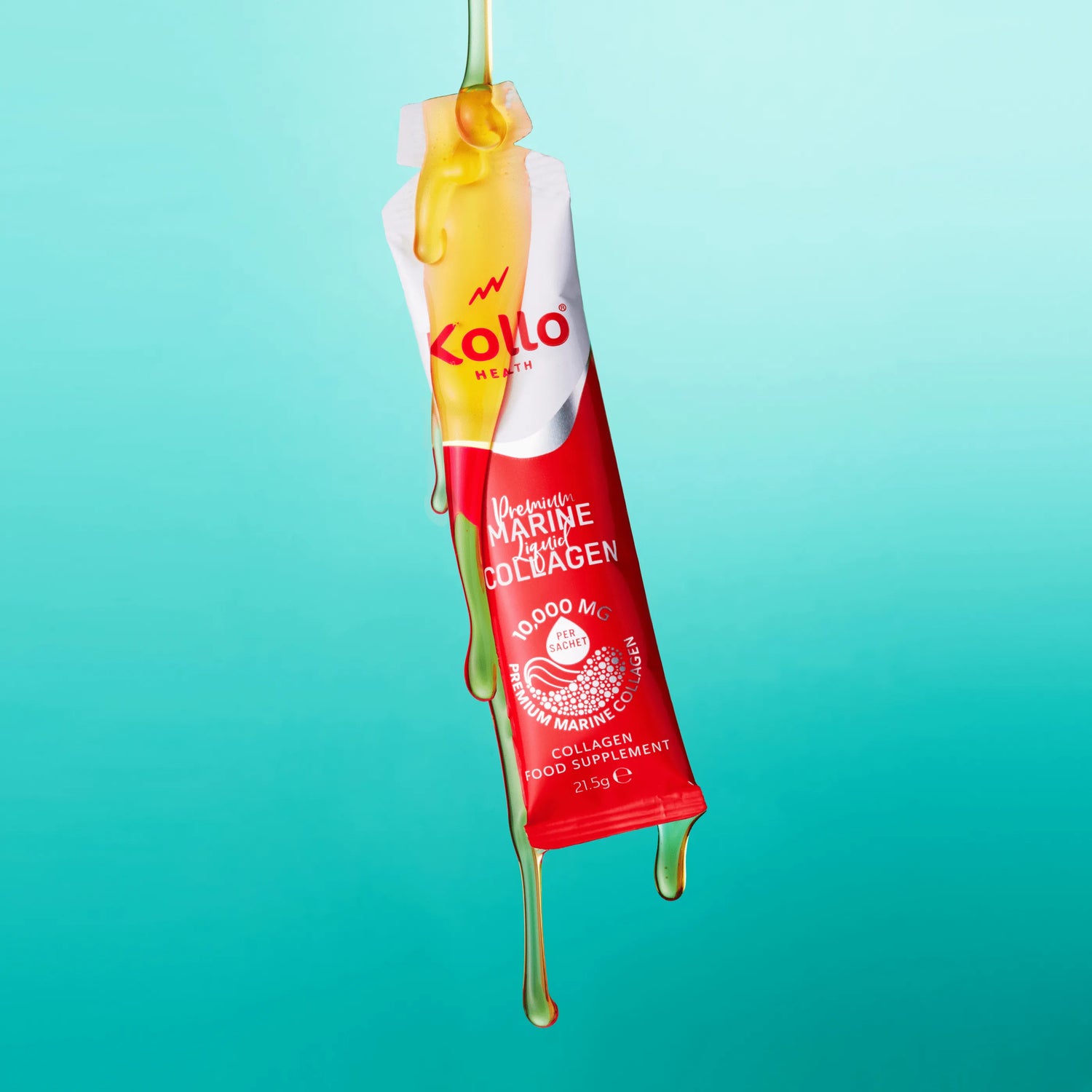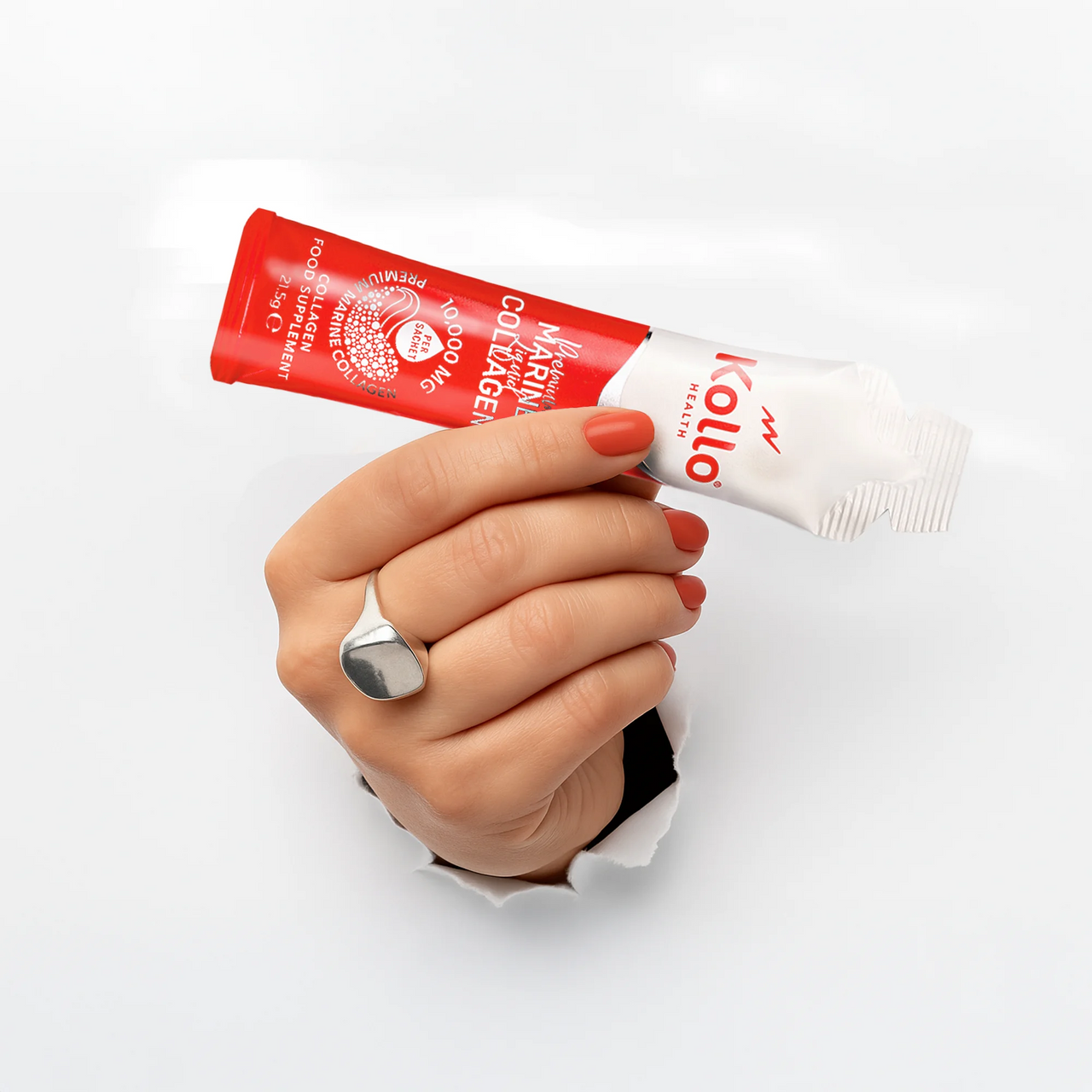When we reach menopause, our bodies begin to experience significant changes. A fluctuation in hormones such as oestrogen and progesterone means our whole body feels the impact of this transition as we enter the next phase of our life. One of the most visible is the impact on our skin and hair, and this is where choosing a multi-award-winning brand of collagen, such as Kollo, could help. When we reach menopause, our bodies experience a dramatic reduction in collagen – around a 30% drop as opposed to the gradual 1% reduction we’re accustomed to. It’s no surprise that this has an impact on our skin, and people going through menopause will experience various changes in skin elasticity, which can result in poor texture and tone as well as increased sagging.
How does menopause influence collagen production?
Many of us will remember the impact hormones had on our skin as teenagers, and the hormonal changes that happen in menopause are no different. One of the most significant ways is collagen production. The drop in production is exacerbated by the lack of modulation to inflammation, which will further damage healthy collagen cells. How can I support my skin through menopause?
Choosing a great quality collagen supplement is a good place to start.
Kollo is a daily 10,000mg liquid marine collagen sachet (which is the most marine collagen in a sachet in the UK) and it’s an excellent source of essential amino acids, plus added vitamins B & C, which aid collagen production. A quick glance through our customer stories shows how using marine collagen can help our bodies cope with the challenges of menopause and perimenopause, including helping to maintain good-looking skin.
Choose collagen to support your skin through menopause
Using collagen supplements could help your body to produce the essential elastins and collagen that it needs to keep skin healthy. Taken daily, a collagen supplement such as Kollo marine collagen could also have a huge impact on our body’s ability to manage many of the other hormonal changes caused by menopause, such as reduced bone density, mood swings and poor sleep.







